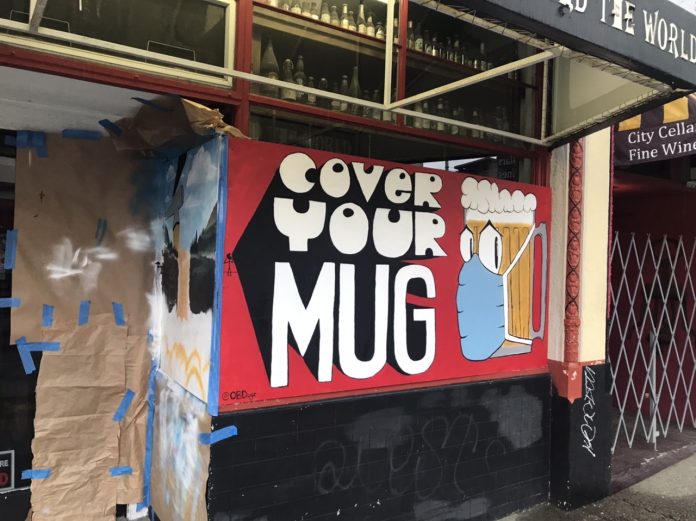Private outdoor space: In a time of social distancing, we are learning the important of superior balcony design.
An asset: Contrary to what some might say, density can be a solution in fighting disease.
Regulate rent: Most Washingtonians support initiative proposals for rent control and more renter protections.
CA transit grants: California is issuing $500 million in transit grants with BART getting the biggest grant but an Amtrak corridor will also get a healthy grant.
Huge need: Applications for food assistance programs continue to skyrocket in Washington ($).
Not correlated: Some people and researchers are trying to lay blame on New York City’s COVID-19 epidemic spread on the subway, but there isn’t enough evidence to make a true correlation.
Wrong governing numbers: Georgia’s governor is recklessly and prematurely trying to lift business restrictions amidst the COVID-19 epidemic, which likely has to do with political concerns over unemployment numbers and payouts.
Trump virus: Due to failure to act and rejection of facts, COVID-19 is now poised to ravage areas that typically favor Donald Trump.
Lowered capacity: Metro is now restricting the number of passengers allowed on buses ($), possibly passing up riders when at “capacity”.
We have the power: An opinion piece in Crosscut says that if we can mobilize against COVID-19, we can for climate change, too.
MARC expansion: Maryland is looking to expand local passenger rail from Baltimore to Philadelphia, which would allow riders to use local passenger rail options from northern Virginia to New England without ever using Amtrak.
Broke: The Port of Seattle says that federal assistance for the airport won’t be enough ($) to cover COVID-19 losses.
Corrupt governance: Federal small business assistance is very unequal across the country with the biggest share of successful applications in states that Donald Trump hopes to win.
Stop bullying: Over the bullying of landlords, some cities in California have rescinded their eviction moratoriums.
Car-free blueprint: European cities are rapidly freeing up streets from cars and handed them over to people walking, biking, and rolling in response to COVID-19.
Tragic end: A bus rider flagging down a King County Metro bus unfortunately died in a collision with the bus ($).
Put on hold: Ann Arbor, Michigan was on the cusp of adopting a $1 billion carbon neutrality plan, but the COVID-19 epidemic has meant putting that on hold.
Retail meltdown: The retail apocalypse could be accelerated by COVID-19, possibly ending up as the death knell for department stores ($).
Drug decriminalization: A drug possession decriminalization initiative could end up on the November ballot in Washington.
I-5 crossing: A draft plan in Portland could lead to a car-free bridge over I-5.
Rising unemployment: Unemployment claims could reach one million next week in Washington ($).
Financial calamity: The impacts of the COVID-19 epidemic is a financial calamity to state and local governments of all sizes, which is why federal assistance is needed.
Service lanes: To aid social distancing and businesses, Washington, D.C. is temporarily widening sidewalk areas near high traffic retailers and restaurants.
Map the Week: To tackle the COVID-19 epidemic effectively, multi-state pacts are being formed and may make the case for megaregions.
Stephen is a professional urban planner in Puget Sound with a passion for sustainable, livable, and diverse cities. He is especially interested in how policies, regulations, and programs can promote positive outcomes for communities. With stints in great cities like Bellingham and Cork, Stephen currently lives in Seattle. He primarily covers land use and transportation issues and has been with The Urbanist since 2014.



